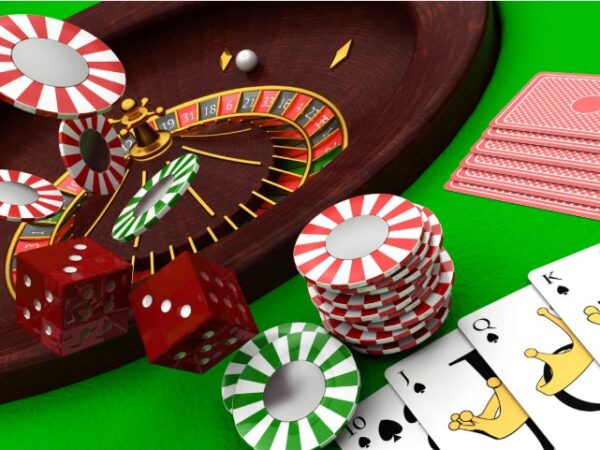Texas Hold em Cheat Sheet for Beginners and Enthusiasts

Texas Hold em cheat sheet is one of the most popular and exciting variations of poker. With its mix of strategy, psychology, and a touch of luck, it’s no wonder millions of players around the world are hooked. But whether you’re a beginner or an experienced player, jumping into a game without the proper guidance can feel overwhelming. This is where a Texas Hold em cheat sheet comes in handy.
This cheat sheet will be your go-to guide, helping you understand key elements of the game—from hand rankings to advanced strategies—so you can focus on making better decisions at the table. Whether you play online or in person, this resource will equip you with the foundation for successful gameplay.
Understanding Hand Rankings: A Quick Reference
The first step to mastering Texas Hold’em is understanding hand rankings—a crucial element of the game. Here’s a quick reference guide to help you differentiate between winning and losing hands, ranked from best to worst:
- Royal Flush (Ace, King, Queen, Jack, 10, same suit)
- Straight Flush (Five sequential cards, same suit)
- Four of a Kind (Four cards of the same rank)
- Full House (Three of a kind + a pair)
- Flush (Five cards, same suit, in any order)
- Straight (Five sequential cards, mixed suits)
- Three of a Kind (Three cards of the same rank)
- Two Pair (Two sets of two cards of the same rank)
- One Pair (Two cards of the same rank)
- High Card (Highest card when no combinations exist, e.g., Ace, King, etc.)
Keep these rankings in your mind—it will inform every decision you make throughout the game.
Starting Hand Guide: Which Hands to Play
Choosing which hands to play is one of the most critical decisions in Texas Hold’em. Not all starting hands are created equal, and this cheat sheet simplifies what you should prioritize.
Here’s a breakdown of strong starting hands you should consider playing, especially as a beginner:
- Premium Hands (Play aggressively):
-
- Pocket Aces (AA)
- Pocket Kings (KK)
- Pocket Queens (QQ)
- Ace-King suited (AKs)
- Playable Hands (with fewer players or good position):
-
- Jack-Ten suited (JTs)
- Ace-Queen off-suit (AQo)
- Small pairs (e.g., 77, 88)
By focusing on higher-value starting hands, you can avoid unnecessary risks and put yourself in stronger positions as the game progresses.
Position Play: How to Utilize Your Seat at the Table
Your position at the poker table has a massive influence on how you should play each hand. Here’s why understanding table position matters in Texas Hold’em.
- Early Position (EP) (Seats directly to the left of the dealer button): Play very tightly here, as you’ll have to act first after the flop. Only play premium hands.
- Middle Position (MP) (Seats between EP and later positions): Allows for slightly looser play. Add hands like Ace-Jack suited or King-Queen off-suit into your range.
- Late Position (LP) (Cutoff and dealer button): This is where you can play the widest range of hands, as you have the advantage of seeing other players act first.
Tip: If you’re just starting out, prioritize playing in late position whenever possible—it’s where most beginner mistakes can be minimized.
Betting Strategies: When to Bet, Raise, or Fold
Understanding the different betting options is essential. Here’s a streamlined breakdown of when to bet, raise, or fold in Texas Hold’em.
- When to Bet:
-
-
- When you have a strong hand (e.g., top pair, overpair, flush draw).
- To build the pot on strong draws.
- To impose pressure on weaker opponents.
-
- When to Raise:
-
-
- To maximize value from a strong hand.
- To push out players on marginal hands.
- When you sense weakness from your opponents.
-
- When to Fold:
-
-
- When your hand has little chance of improving.
- When facing heavy aggression without sufficient odds to continue.
-
Pro tip for beginners? Fold more often than you suspect. Patience is as important as skill in Texas Hold’em.
Reading Opponents: Basic Tells and Strategies
Reading opponents is both an art and a science in poker. While it takes practice, here’s a cheat sheet to spot basic tells and behaviors at the table.
- Physical tells (live games):
-
- Shaking hands or excessive hesitation = Weakness.
- Quick bets or overly confident speech = Bluff.
- Online behaviors to watch for:
-
- Timing patterns (e.g., instant bets often mean confidence).
- Check-raise trends (a common online bluff technique).
Combine these observations with your betting strategy to outmaneuver your opponents.
Common Mistakes to Avoid: A Beginner’s Guide
Here are several pitfalls to steer clear of, particularly for newer players attempting to refine their Texas Hold’em skills.
- Overvaluing marginal hands: Not all pairs are worth celebrating—especially when three or more players are in the pot.
- Failing to fold losing hands: Avoid “fishing” for bets hoping for a miracle.
- Ignoring position: Don’t play the same hands in early position as you would in late position.
Advanced Tips and Tricks for Experienced Players
Once you’ve mastered the basics, these advanced strategies can elevate your game.
- Bluff with purpose: Only bluff when it aligns with the story you’re telling through your bets.
- Bankroll management: Keep your poker investments in check and resist going all-in unnecessarily.
- Study your sessions: Use tracking software for online games or keep a log of hands you’ve played offline.
Texas Hold em Cheat Sheet PDF Download
For more convenience, download the Texas Hold’em Cheat Sheet PDF here. This printable resource offers all the guidance you need in an easy-to-digest format, perfect for quick reference during practice games or tournaments.
[Download Pdf: texas hold em cheat sheet]
Master Your Texas Hold em Strategy With This Cheat Sheet
Texas Hold’em may seem complex, but with the right strategy and tools, anyone can master it. By leveraging this cheat sheet, you’ll not only improve your gameplay but also make poker more enjoyable every time you sit down at the table.
Your next move? Put these tips into practice! Whether you’re joining a friendly home game or testing your skills online, apply the insights from this cheat sheet and see the difference it makes.
For more poker tips, strategies, and exclusive resources, stay connected with us. Happy playing!











